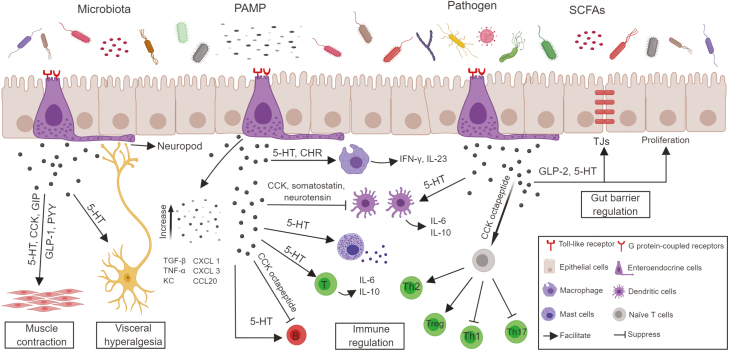FIGURE 1.
Enteroendocrine cell influence on gut function in inflammatory bowel disease. Enteroendocrine cells possess multiple chemosensory receptors that can detect intestinal microbiota and microbial metabolites. In response, EECs can secrete peptide hormones and classical cytokines to the surrounding immune cells and modulate both the innate and adaptive immune systems. Besides that, EECs possess cytoplasmic processes in close proximity to enteric nerve terminals. The released hormones may regulate the visceral hyperalgesia and intestinal motility in a paracrine fashion, along with synaptic transmission. Furthermore, enteroendocrine hormones can modulate the intestinal epithelial barrier function through both transcellular and paracellular pathways. All this evidence predicts the crucial role of EECs in the pathophysiology of IBD.

